White granite countertops are a popular choice among homeowners due to their timeless beauty and ability to brighten up any kitchen or bathroom. Granite, being a natural stone, offers unique patterns and variations that can add elegance and character to any space. White granite, in particular, provides a clean and classic look that can complement a wide range of design styles, from traditional to contemporary. However, one common concern among homeowners considering white granite countertops is the potential for staining. Understanding the properties of granite and how to care for it can help mitigate these concerns and ensure that your countertops remain beautiful for years to come.
Granite is a durable and dense natural stone, but it is also porous, meaning that it can absorb liquids if not properly sealed. This porosity can lead to staining if substances like wine, coffee, oils, or acidic foods are left on the surface for extended periods. White granite, with its lighter color, can make stains more noticeable compared to darker varieties. However, with proper sealing and maintenance, the risk of staining can be significantly reduced. Sealing granite countertops creates a protective barrier that helps prevent liquids from penetrating the surface, making it easier to clean spills before they cause permanent stains.
Regular sealing is crucial for maintaining the stain resistance of white granite countertops. Depending on the type of granite and the level of use, countertops may need to be sealed once a year or every few years. To check if your granite needs sealing, you can perform a simple water test: pour a small amount of water on the surface and observe how it behaves. If the water beads up, the seal is still effective. If the water begins to absorb into the stone within a few minutes, it’s time to re-seal your countertops. Using high-quality sealers specifically designed for natural stone can provide long-lasting protection and keep your white granite looking pristine.
Another important aspect of preventing stains on white granite countertops is prompt and proper cleaning. Spills should be wiped up immediately to prevent them from being absorbed into the stone. Using a pH-neutral cleaner that is safe for natural stone is recommended, as acidic or abrasive cleaners can damage the sealant and the granite itself. Daily cleaning with mild soap and water, followed by drying with a soft cloth, can help maintain the countertop’s appearance and hygiene. Avoiding harsh chemicals and opting for gentle, stone-safe cleaners will preserve the integrity of both the granite and the sealant.
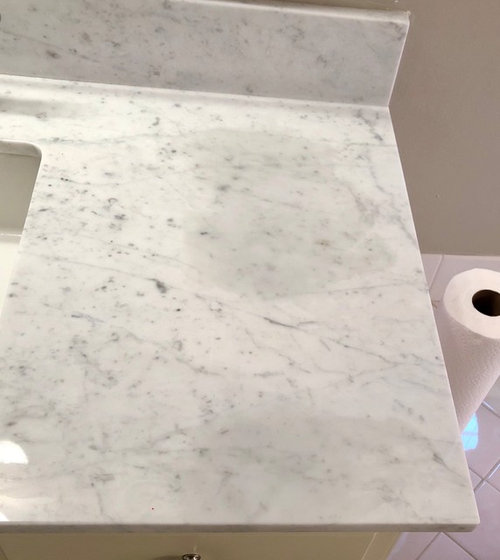
In addition to regular cleaning and sealing, some preventative measures can help protect white granite countertops from staining. Using coasters, placemats, and trivets can prevent spills and heat damage. Cutting boards should be used when preparing food to avoid direct contact between knives and the granite, which can also help prevent scratches and reduce the risk of staining from food particles. Educating all household members about these practices can ensure that the countertops are consistently well-maintained.
While white granite countertops are not completely stain-proof, they are more resilient than many other natural stones when properly cared for. In instances where stains do occur, there are methods for removing them without causing damage. For organic stains, such as those from coffee or wine, a poultice made from baking soda and water can be applied to the stain and left to sit for 24 hours before being wiped away. Oil-based stains may require a different approach, using a mixture of baking soda and acetone. It’s important to follow the manufacturer’s guidelines and, if necessary, consult a professional for stubborn stains.
One of the benefits of white granite countertops is their versatility in design. They can be paired with a variety of cabinetry colors and styles, from dark, rich woods to bright, contemporary designs. The light color of the granite can make small spaces appear larger and more open, and its reflective properties can enhance natural light in the room. Whether used in kitchens, bathrooms, or other areas of the home, white granite can provide a sophisticated and polished look.
In addition to their aesthetic appeal, white granite countertops offer several functional benefits. Granite is a highly durable material that can withstand heavy use and is resistant to scratches and heat. This makes it an ideal choice for busy kitchens where cooking and food preparation are frequent activities. The durability of granite also means that it can last for many years with proper care, making it a long-term investment for your home.
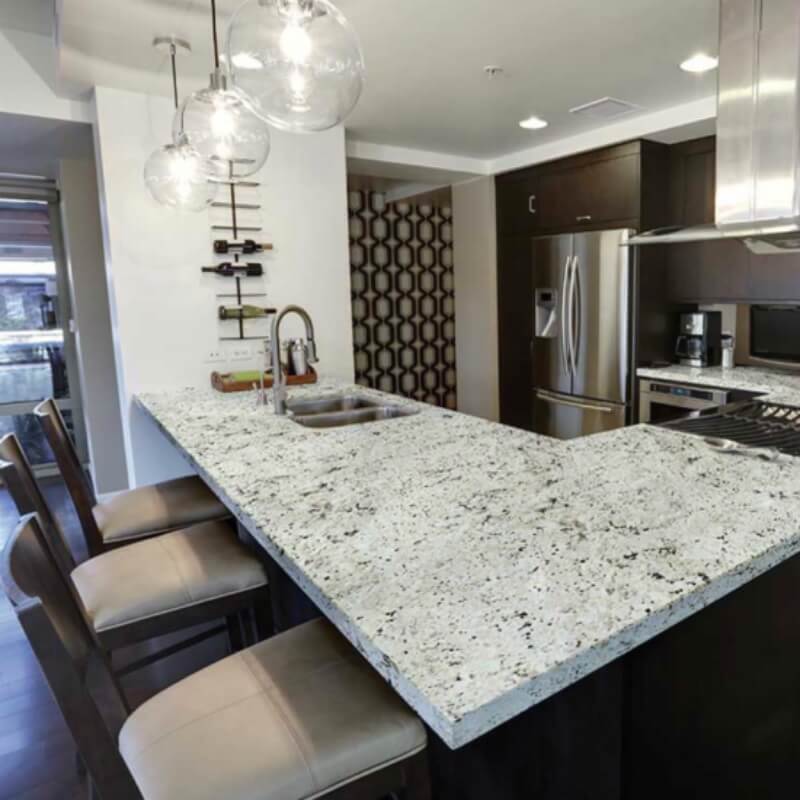
Moreover, white granite countertops can add value to your home. Natural stone is often seen as a premium material, and its presence in the kitchen or bathroom can be a selling point for potential buyers. The classic and timeless appeal of white granite means that it is unlikely to go out of style, ensuring that your countertops remain desirable and valuable over time.
When selecting white granite for your countertops, it’s important to consider the various types available. Different quarries produce granite with distinct patterns and shades of white, ranging from pure white to with gray or beige veining. Visiting a showroom or slab yard to view large pieces of granite can help you choose the best match for your space. Working with a knowledgeable fabricator can also ensure that the countertops are cut and installed to maximize the beauty of the stone’s natural patterns.
Additionally, it’s worth considering the finish of the granite. Polished finishes are the most common and offer a high-gloss look that enhances the stone’s color and pattern. Honed finishes provide a matte appearance that can give the granite a more understated and natural look. Leathered finishes add texture to the surface, providing a unique tactile quality. Each finish has its own aesthetic and practical advantages, so choosing the right one depends on your personal preferences and the overall design of your space.
Despite the potential for staining, the benefits of white granite countertops often outweigh the drawbacks for many homeowners. The combination of beauty, durability, and versatility makes granite a preferred choice for those looking to upgrade their kitchens or bathrooms. By understanding how to care for and maintain white granite, homeowners can enjoy the elegance and functionality of this natural stone for many years.
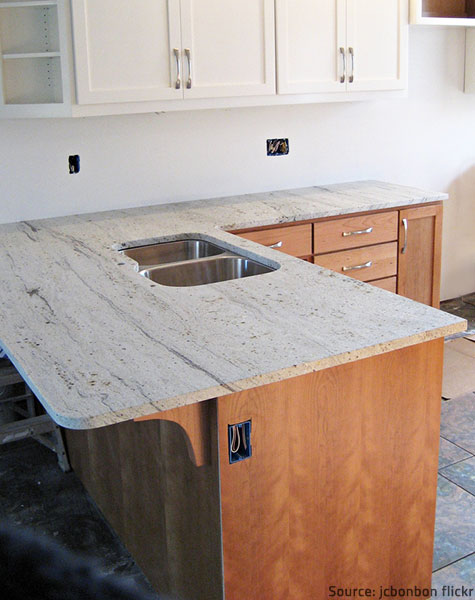
Common Mistakes to Avoid
One common mistake is failing to properly seal granite countertops. Without sealing, the porous nature of granite makes it susceptible to staining. It’s important to follow a regular sealing schedule and use high-quality products designed for natural stone. Another mistake is using the wrong cleaning products. Acidic or abrasive cleaners can damage the sealant and the granite, leading to stains and etching. Stick to pH-neutral, stone-safe cleaners to protect your countertops.
Neglecting to clean up spills promptly is another error that can lead to staining. Leaving substances like wine, coffee, or oil on the surface for too long can allow them to penetrate the stone. Immediate cleaning with mild soap and water is crucial. Also, not using coasters, trivets, and cutting boards can increase the risk of stains and scratches. These protective measures can prevent direct contact with potentially damaging substances.
Lastly, ignoring professional advice and not consulting with experts when dealing with stubborn stains or repairs can result in further damage. Professionals have the knowledge and tools to properly treat and maintain granite countertops, ensuring their longevity and beauty.
.jpg)
Do white granite countertops require a lot of maintenance?
White granite countertops require regular maintenance to keep them looking their best, but this maintenance is relatively simple. Regular sealing, typically once a year, helps prevent staining. Daily cleaning with mild soap and water, and avoiding harsh chemicals, keeps the surface clean and protected. Using coasters, trivets, and cutting boards can further protect the granite from potential damage. While some care is necessary, it is not overly burdensome and can ensure the countertops remain beautiful and functional.
Can white granite countertops be repaired if they get stained?
Yes, white granite countertops can often be repaired if they get stained. The method of repair depends on the type of stain. For organic stains, a poultice made from baking soda and water can be effective. Oil-based stains might require a mixture of baking soda and acetone. It’s important to follow the correct procedures and consult a professional if the stain persists. In many cases, proper cleaning and sealing can restore the countertop to its original condition.
How often should I seal my white granite countertops?
The frequency of sealing white granite countertops depends on the type of granite and the level of use. Generally, sealing once a year is recommended. However, some countertops may need more frequent sealing, while others may require less. Performing a water test can help determine when resealing is necessary. Pour a small amount of water on the surface; if it beads up, the seal is still effective. If the water begins to absorb into the stone within a few minutes, it’s time to re-seal.
What should I avoid placing on white granite countertops to prevent stains?
To prevent stains, avoid placing items that can cause discoloration, such as wine, coffee, oils, and acidic foods, directly on the countertops. Use coasters under drinks and trivets under hot pots and pans to protect the surface. Cutting boards should be used for food preparation to prevent scratches and reduce the risk of staining from food particles. Avoid using harsh chemicals or abrasive cleaners, as they can damage the sealant and the granite itself.
Are there any specific types of white granite that are more stain-resistant?
Certain types of white granite may be more stain-resistant due to their mineral composition and density. Generally, denser granites with fewer pores are more resistant to staining. However, all granite, including white varieties, should be sealed to enhance their stain resistance. It’s important to consult with a knowledgeable supplier or fabricator to choose a type of white granite that meets your aesthetic preferences and durability needs. Proper care and maintenance are crucial regardless of the specific type of granite.
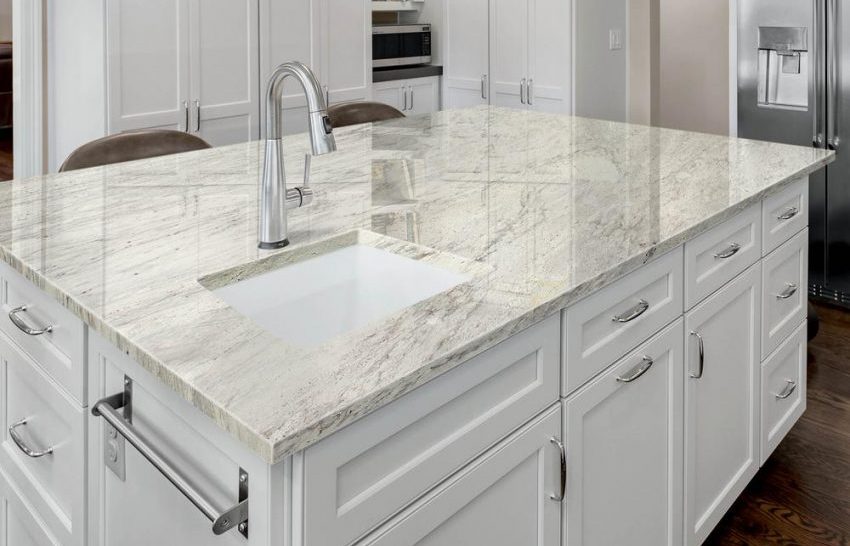
Are White or Light Granite Countertops Practical for Kitchens?
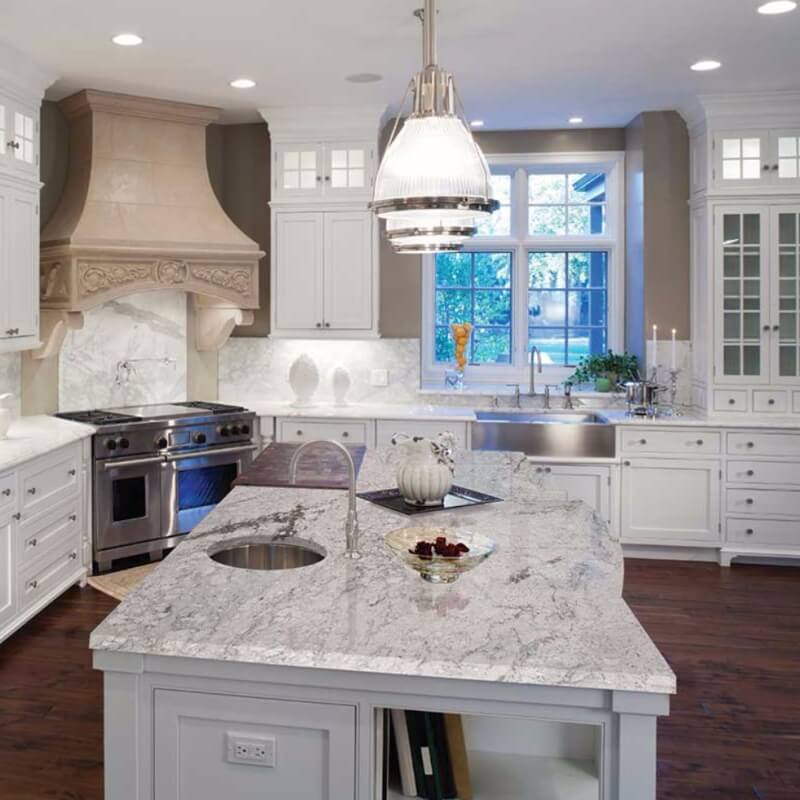
White ice granite has rust stains?
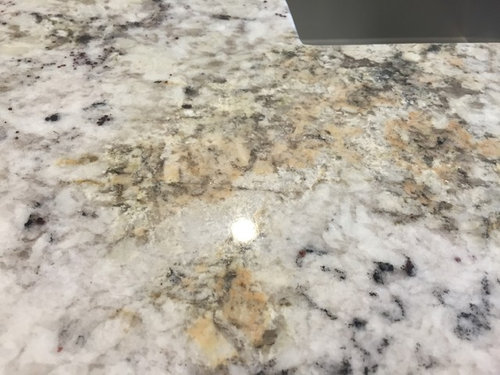
Are White or Light Granite Countertops Practical for Kitchens?
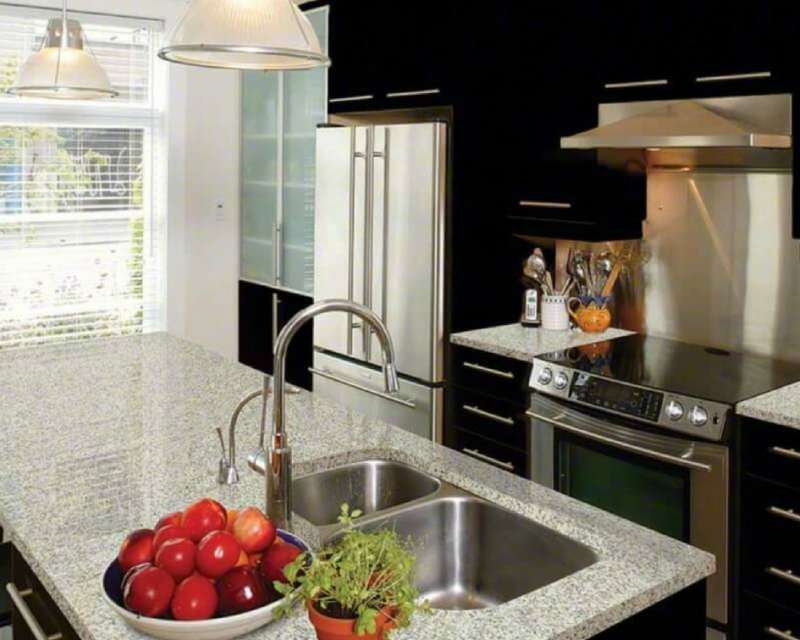
Getting A Stain Out Of Your Granite Counter Is Easier
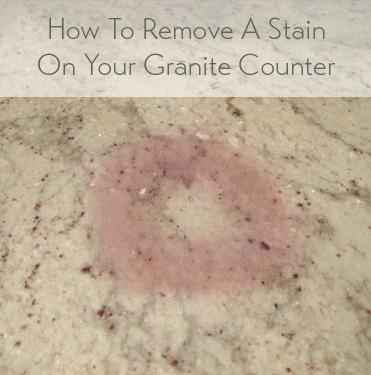
How to Remove White Granite Countertops Stains

Related articles: